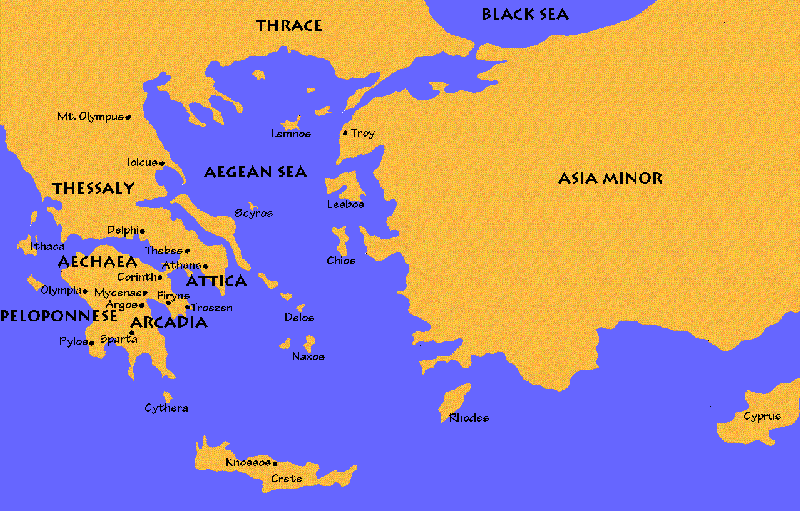This page offers additional resources for students who wish to learn more about Ancient Greece.
MAIN IDEAS
1. Trade greatly affected the development of early Greek civilizations.
2. Mycenaean civilization flourished in Greece between 16900 and 1100 BCE.
3. The Greeks used the Iliad and Odyssey to present role models of the values of courage, honor, and excellence.
4. The polis or city-state was the central focus of Greek life.
5. The search for farmland and the growth of trade resulted in colonies and the spread of Greek culture and politics.
6. During the Age of Pericles, Athens became the center of Greek culture.
7. The creation of the Athenian empire led to war with Sparta.
8. Greek philosophers were concerned with the development of critical or rational thought about the nature of the universe.
9. Greeks believed that ritualized religion was necessary for the well-being of the state.
10. Under Alexander the Great, Macedonians and Greeks conquered the Persian Empire.
11. Hellenistic cities became centers for the spread of Greek culture.
Key Terms, People, and Places
| epic poem | helot | Delian League | Aristotle |
| arete | ephor | Great Peloponnesian War | Thucydides |
| Minoans | Aristotle | Thebes | Delphi |
| Mycenaeans | Solon | Macedonia | Gulf of Corinth |
| Homer | Cleisthenes | Asia Minor | Hellenistic Era |
| Aegean Sea | Athens | Delos | Epicureanism |
| Black Sea | Hellespont | ritual | Stoicism |
| Crete | Bosporus | oracle | Philip II |
| Ionia | Byzantium | tragedy | Alexander the Great |
| polis | Sparta | philosophy | Erotosthenes |
| acropolis | Age of Pericles | Socratic Method | Euclid |
| agora | direct democracy | Aeschylus | Archimedes |
| hoplite | ostracism | Sophocles | Macedonia |
| phalanx | Darius | Pythagoras | Alexandria |
| democracy | Xerxes | Socrates | Pergamum |
| oligarchy | Pericles | Plato |

Map of Ancient Greek City-States

Map of Allies-Peloponnesian War


ADDITIONAL RESOURCES
Ancient Greece
http://www.ancientgreece.com/s/Main_Page/
http://www.bbc.co.uk/schools/primaryhistory/ancient_greeks/
http://greece.mrdonn.org/
http://www.mrdowling.com/701greece.html
http://www.pbs.org/empires/thegreeks/htmlver/
British Museum
http://www.ancientgreece.co.uk/
Games
http://greece.mrdonn.org/games.html
http://library.thinkquest.org/CR0210200/ancient_greece/online_activities.htm